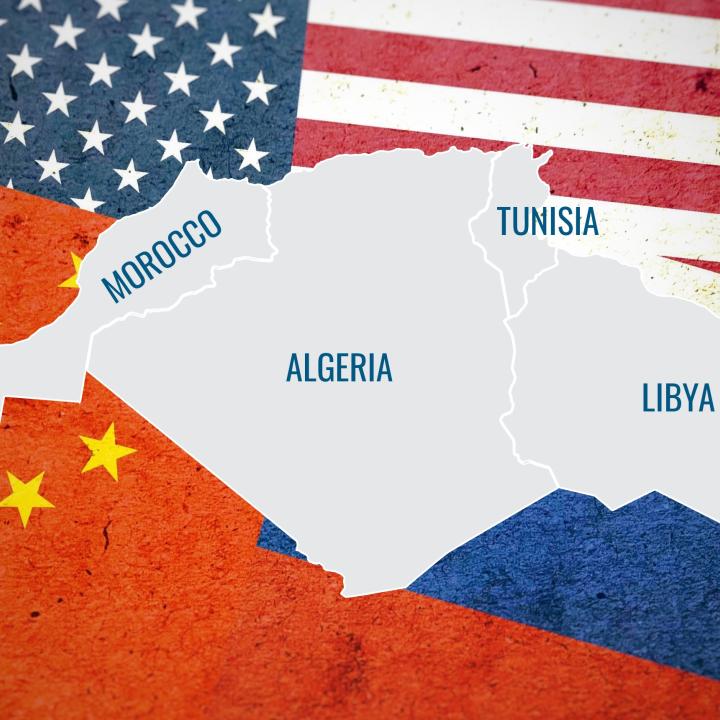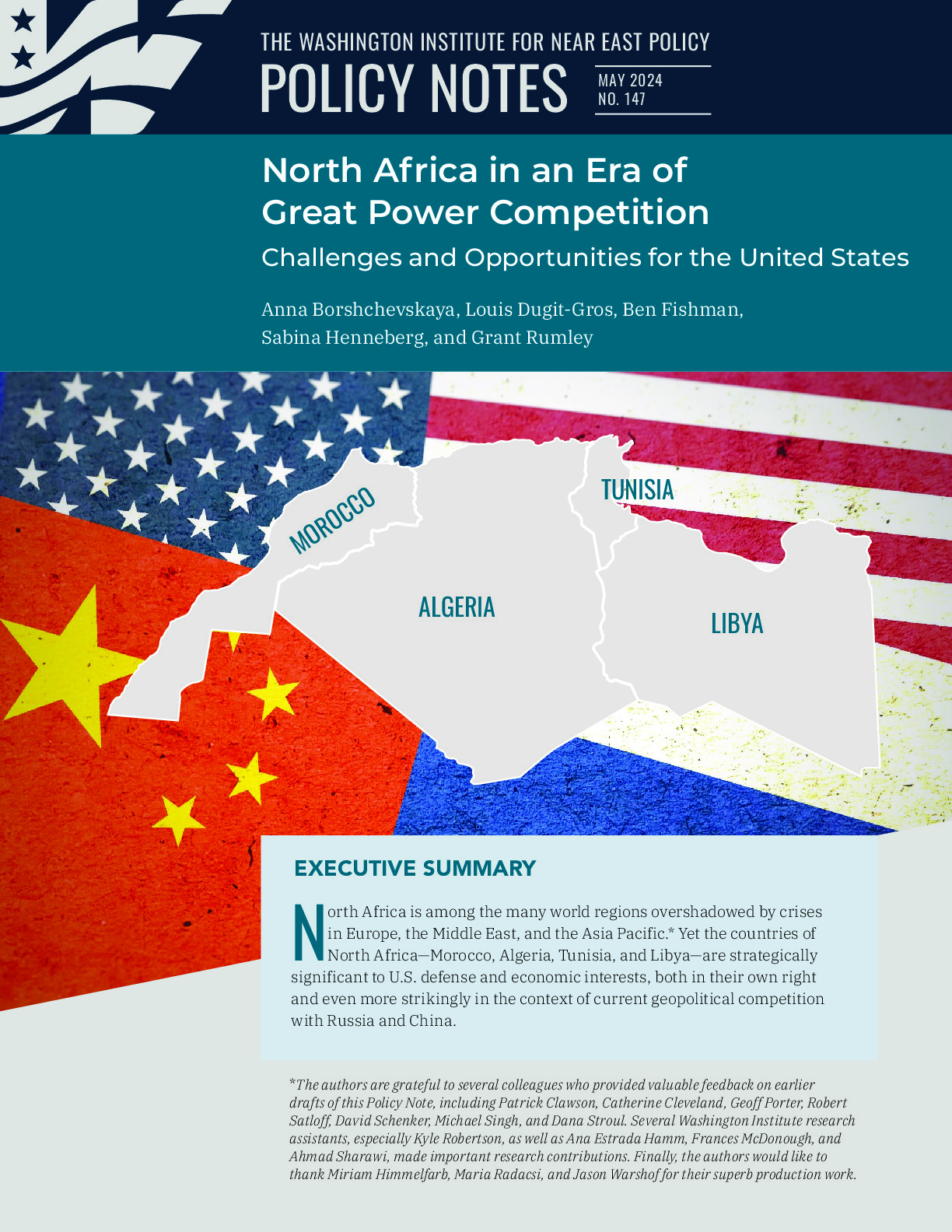
- Policy Analysis
- Policy Notes 147
North Africa in an Era of Great Power Competition: Challenges and Opportunities for the United States

Washington can demonstrate its decisive edge in areas like climate change remediation and economic development, while highlighting the many dangers posed by partnership with Russia and China.
This week, Tunisia’s President Kais Saied will be among the leaders attending the tenth China–Arab States Cooperation Forum in Beijing. The event deserves U.S. attention, even as foreign policy minds remain focused on Ukraine and Gaza, because North African countries are strategically significant to U.S. defense and economic interests. Viewed through the lens of great power competition, China generally advances its economic interests by developing local infrastructure (e.g., ports), whereas the other main U.S. competitor—Russia—favors a security-based approach, supporting whatever actor it believes will help advance its goals (e.g., Gen. Khalifa Haftar in Libya). Such inroads threaten American interests and require responses that address the region both holistically and state-by-state.
In this Policy Note, five experts argue for more robust U.S. engagement in North Africa against the anti-liberal designs of Beijing and Moscow. An effective approach, they contend, would amplify the benefits of cooperation in areas like climate change remediation and economic development, while highlighting the dangers posed by America’s rivals to national growth, freedom, and—especially in the case of China—sovereignty.








